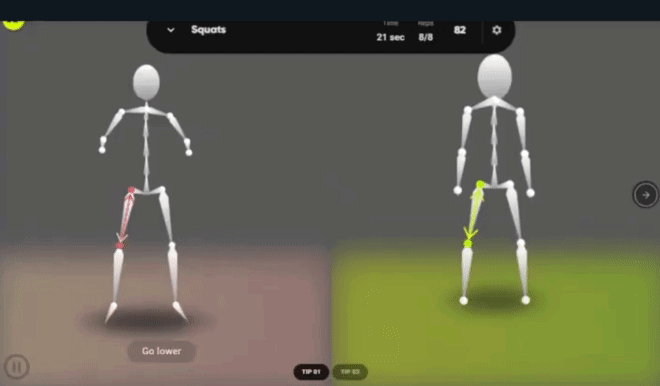The HSE estimates that over 8.9 million working days are lost annually due to work-related MSK disorders, costing the UK economy billions in lost productivity and healthcare expenses.
In recent years, there has been a noticeable rise in worker illness, impacting both employees’ well-being and business productivity. One of the most prevalent issues contributing to this trend is Musculoskeletal (MSK) disorders. These conditions, often stemming from repetitive strain, poor ergonomics, and inadequate workplace practices, can lead to chronic pain and long-term health problems. At DocHQ, we recognize the critical need to address these issues head-on. Our specialised AI-driven Physio service is designed to prevent and manage employee pain, ensuring a healthier and more productive workforce.
Understanding the causes of worker illness
1. Musculoskeletal (MSK) Disorders
MSK disorders are among the leading causes of worker illness. These conditions affect the muscles, bones, and joints, and are often caused by repetitive movements, prolonged periods of sitting or standing, and poor posture. Common MSK disorders include:
Back Pain: Frequently resulting from improper lifting techniques or prolonged sitting.
Carpal Tunnel Syndrome: Caused by repetitive hand movements and poor wrist ergonomics.
Tendonitis: Often linked to repetitive strain and overuse of certain muscles.
2. Stress and mental health issues
The modern workplace is fast-paced and often high-pressure, leading to increased stress levels among employees. Chronic stress can contribute to various physical ailments, including MSK disorders, by causing muscle tension and poor posture. Additionally, mental health issues such as anxiety and depression can exacerbate physical pain and reduce overall well-being.
3. Poor ergonomics
Improper workstation setups are a significant contributor to MSK disorders. Desks and chairs that do not support good posture, monitors placed at incorrect heights, and lack of ergonomic accessories can all lead to chronic pain and discomfort.
Solutions to prevent and manage employee pain
1. Ergonomic assessments and adjustments
Implementing ergonomic assessments in the workplace can identify potential issues and provide solutions tailored to individual employees’ needs. Adjusting desk heights, providing supportive chairs, and ensuring proper monitor placement are simple yet effective measures.
2. Regular movement and exercise
Encouraging employees to take regular breaks and engage in physical activity can prevent the onset of MSK disorders. Simple exercises, stretching routines, and regular movement can significantly reduce the risk of chronic pain.
3. Stress management programs
Introducing stress management programs, including mindfulness training, counselling services, and promoting a healthy work-life balance, can help mitigate the impact of stress on physical health.


4. Specialised physiotherapy services
This is where DocHQ Physio comes into play. Our specialised physiotherapy services are designed to address both the prevention and management of MSK disorders. Here’s how DocHQ Physio can help:
Personalised assessments
Our physiotherapists conduct thorough assessments to identify existing issues and potential risk factors. This personalised approach ensures that each employee receives the most effective treatment and advice.
Targeted treatment plans
Based on the assessment, our physiotherapists develop tailored treatment plans. These may include manual therapy, exercises, and stretches aimed at relieving pain and improving mobility.
AI-driven real-time feedback
DocHQ Physio uses AI-driven motion tracking technology that provides real-time corrective feedback on movement as the employee performs their video-guided treatment plan. This ensures that exercises are performed accurately and effectively, to optimise recovery time.
Enhancing accessibility
One of the key benefits of DocHQ Physio is its accessibility. Employees can access services remotely or on-site, particularly beneficial in today’s hybrid work environments and for staff who frequently travel. This flexibility ensures that all employees, regardless of their location, can benefit from professional physiotherapy advice and interventions.
Ongoing support and follow-up
Regular follow-up sessions ensure that employees continue to benefit from the treatment and advice provided. Our physiotherapists adjust treatment plans as needed to ensure long-term relief and prevention.
Conclusion
The rise of worker illness, particularly due to MSK disorders, is a pressing issue that requires proactive solutions. At DocHQ, we are committed to promoting employee health and well-being through our specialised Physio service. By addressing the root causes of MSK disorders and providing targeted, personalised care, we can help prevent and manage employee pain, leading to a healthier, more productive workforce.



